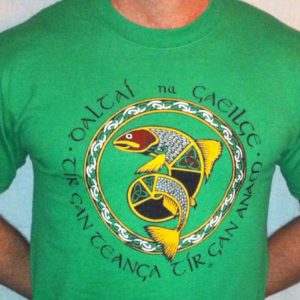Hoping to recoup ruins the gambler.
Note: There is a theological position and a set of mathematical theorems implicit in this week’s proverb. This proverb is not a call to ban gambling. The word ‘cearrbhach’ also means card player. Compare this seanfhocal to a popular English proverb, “Cards are the Devil’s books,” a word play on the seventeenth century name for a deck of cards, “the King’s books” from the French livre des quatre. Presbyterian preachers of the era used this proverb to convey their proscription against card playing. In contrast, this week’s seanfhocal is a proscription against dumb card playing.
This proverb expresses the mathematical certainty that if you gamble against the house long enough, then you will lose, and lose everything. The eminent French, seventeenth-century mathematicians Blaise Pascal and Pierre de Fermat failed in efforts to determine a gambling technique to beat the Casinos at Monte Carlo. (As a by-product of trying to beat the house, they created the mathematical discipline known as Probability Theory.) The famous nineteenth century Russian mathematician, A. Ya. Khintchine showed how the house’s advantage in terms of relative stake ultimately leads to a “gambler’s ruin”. Khintchine was also the first to discover the Law of Large Numbers. Ludwig von Mises, the famous ninteenth century economist, showed how no gambling strategy, other than to exit shortly after entering a game, could overcome the house’s odds.
Edward Thorp, an American mathematician, showed in the 1950s, that the odds (when you include vigorish) of all the games in the Casino favor the Casino. Thorp and others combined this empirical fact with von Mises Theorem, with the Law of Large Numbers, and the theory of “Gambler’s Ruin” to prove that if you play against the house long enough, then you will with certainty, eventually, lose everything.
Since this seanfhocal obviously predates Thorp, than we can assume that Irish folk wisdom acquired this axiomatic truth the hard way, by losing. So if you are gambling and losing, cut your losses and quit playing before you lose everything. There is a variation of this seanfhocal that looks at winning, “Súil le breis a mhilleann an cearrbhac.” (Hoping for more ruins the gambler.) In other words, if you are gambling and winning, take the money and run. Otherwise, you will eventually lose it all. In the long run, you simply can not beat the house.
